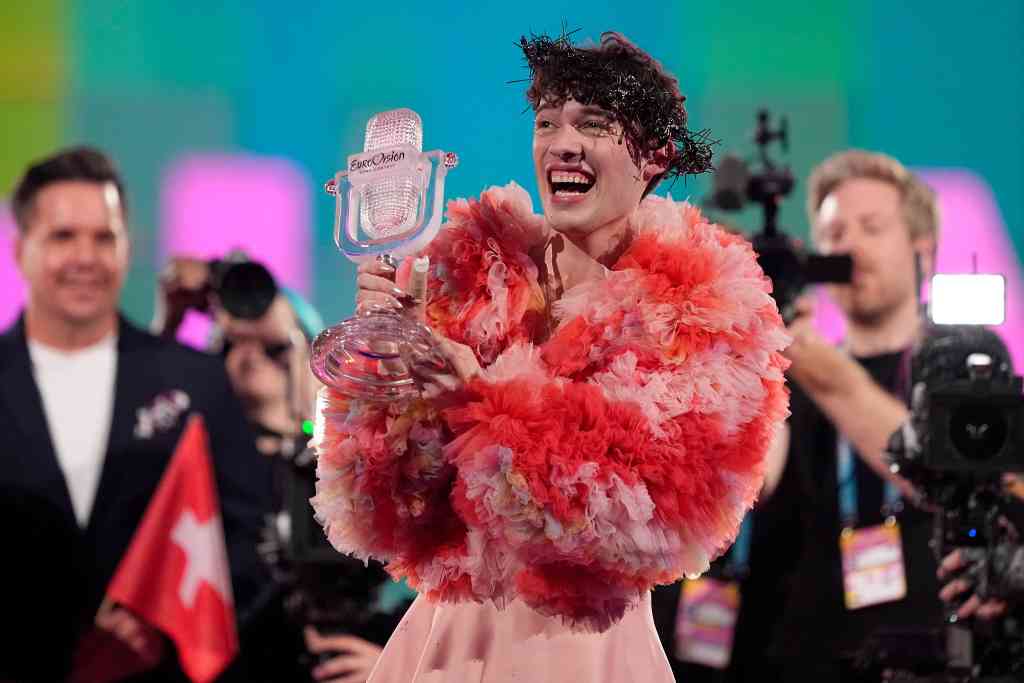Swiss singer Nemo won the Eurovision Song Contest in Sweden with their song “The Code,” a blend of opera and hip-hop. They scored 591 points, becoming the first non-binary artist to win Eurovision.

Swiss singer Nemo’s triumph at the Eurovision Song Contest 2024 in Sweden marked a historic moment not only for the artist but for the entire Eurovision community. Their winning song, “The Code,” captivated audiences with its unique fusion of opera and hip-hop, securing Nemo an impressive score of 591 points.
This victory not only showcased Nemo’s talent but also highlighted their status as the first non-binary artist to win the Eurovision Song Contest, a significant milestone for representation and diversity in the music industry.
Also Read:- Hailey and Justin Bieber Expecting Their First Child
Nemo’s journey to victory was a testament to their artistry and authenticity. “The Code” was more than just a catchy tune; it served as a personal narrative of Nemo’s struggle to come to terms with their non-binary identity. Through poignant lyrics and a powerful performance, Nemo resonated with audiences, earning both critical acclaim and widespread support.
However, Nemo’s win was not without its challenges and controversies. The Eurovision Song Contest has always been a platform for both celebration and political expression, and this year was no exception. Protests erupted over Israel’s participation in the contest amidst the ongoing conflict with Hamas. Despite the controversy, Israel’s entrant, Eden Golan, managed to secure a respectable fifth place, showcasing the diverse range of voices and perspectives present at Eurovision.
In addition to political tensions, the contest saw its fair share of drama and surprises. Dutch contestant Joost Klein’s disqualification following allegations of inappropriate behavior backstage shocked viewers and organizers alike, underscoring the importance of maintaining a safe and respectful environment for all participants.
Amidst the turmoil, the Eurovision stage was set alight by a diverse array of performances from artists around the globe. From Croatia’s raucous party anthem to Ireland’s powerful declaration of love triumphing over hate, each act brought its own unique flavor to the competition. Finland’s Windows95Man’s unconventional performance, featuring a 1990s house banger performed with trousers off, added a touch of eccentricity to the proceedings.
Also Read:- Former Cameraman Files Lawsuit Against Megan Thee Stallion Alleging Harassment and Hostile Work Environment
ABBA’s much-anticipated appearance, albeit brief, added a nostalgic touch to the contest’s golden anniversary celebrations. While fans hoped for a live performance, the virtual appearance of ABBA’s “abbatars” served as a reminder of the enduring legacy of Eurovision and its ability to unite audiences across generations.
Nemo‘s victory not only celebrated their individual talent but also represented a significant milestone for the LGBTQ+ community. As they accepted the coveted crystal trophy, Nemo’s win served as a powerful reminder of Eurovision’s role as a beacon of inclusivity and acceptance. Their triumph echoed the sentiments of past winners, such as Loreen, who highlighted Eurovision’s unique ability to celebrate diversity and creativity.
